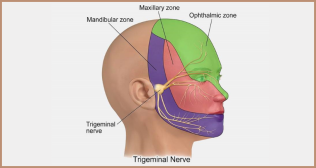
Understanding Palliative Care: its Scope and Beneficiaries
A Brief on Palliative Care
Palliative care is an all-encompassing therapeutic method that considers the patient's needs beyond simply their illness. Together, the medical staff, nursing staff, and other experts offer an additional degree of support. In addition to curative treatment, it is appropriate at any age and at any stage of a serious illness.
Palliative care can also provide some support for the family and loved ones of patients in need. This can be practical support, such as completing legal documents or helping with anxiety. Just as importantly, it can also address the emotional, social, and spiritual issues that arise when a patient is confronted with serious illness and potential treatment. If the patient is a child, then parents and other children in the family can also benefit from services designed to help them face this life-changing event.
Palliative care, unlike many other specialties, does not focus on curing a specific illness. Instead, it provides comfort for patients living with serious, long-term, or even terminal conditions, as well as their families. This means that it is often confused with end-of-life treatment, hospice care, or pain management. Palliative care gives support for patients at any stage of a chronic illness, whether or not it is terminal. It can also assist with end-of-life care. It helps patients live as well as possible in the time they have remaining.
Principles of Palliative Care
The principles of palliative care, as stated by the World Health Organization, are as follows:
- Provide assistance with distressing symptoms such as pain
- Acknowledge life and regard dying as a normal process, neither hasten nor postpone death
- Provide a supportive system to patients to serve an active live as possible until death.
- Provide a support system to help the family cope during the patient's illness, follow-up period, and deal with their own bereavement, and use a team approach that complements the existing specialties in medicine.
Scope
Palliative care mainly aims to address physical and psychological symptoms of chronic illness in patients and their caretakers or families to make decisions about their care, including clarifying treatment goals and potential options.
Physical aspects
Pain and other uncomfortable symptoms of a serious illness are managed with the help of palliative care. Palliative care focuses heavily on managing the physical symptoms associated with serious illnesses. This includes:
- Using medications, physical therapy, and other techniques to alleviate pain.
- Addressing other symptoms such as nausea, shortness of breath, fatigue, loss of appetite and sleep disturbances.
- Providing medical treatments that may not cure the illness but can significantly improve quality of life, such as radiation for pain relief or medications for symptom control.
- Collaborating with various healthcare providers to ensure comprehensive and continuous care.
Psychological and Emotional Support
Palliative care emphasises psychological and emotional support as a crucial component to address the mental and emotional health of patients and their families. Patients suffering from chronic conditions such as long-term cardiac disorders, chronic obstructive pulmonary disease (COPD), kidney failure, HIV/AIDS, and neurodegenerative disorders like Parkinson’s disease or dementia can greatly benefit from palliative care. The support provided includes:
- Alleviating symptoms that affect the patient's daily life.
- Assisting patients in understanding their illness and navigating the healthcare system.
- Helping patients plan, including advanced care planning and making informed decisions about their treatment options.
End-of-Life Care Recipients
End-of-life care is an essential element of palliative care, which focuses on enriching the comfort and supportive facilities to those reaching the end stage of their lifespan. This care includes:
- Providing specialized care focused on comfort rather than cure, often in the patient's home or a hospice facility.
- Ensuring the patient's final days are spent with dignity, free from unnecessary pain and discomfort.
- Addressing spiritual or existential concerns, helping patients and their families find peace and closure.
- Offering extensive support to families, including grief counselling and bereavement services, to help them cope with the impending loss of their loved one.
Conclusion
Palliative treatment enhances the quality of life for those battling disease while also helping patients understand their options of medical care and navigate the healthcare system. Every person's experience with a life-threatening illness is distinct, and the palliative care strategy should reflect this. The priorities of the patient and their family are always at the forefront.
Popular Searches :
Hospitals: Cancer Hospital in Delhi | Best Heart Hospital in Delhi | Hospital in Amritsar | Hospital in Ludhiana | Hospitals in Mohali | Hospital in Faridabad | Hospitals in Gurgaon | Best Hospital in Jaipur | Hospitals in Greater Noida | Hospitals in Noida | Best Kidney Hospital in Kolkata | Best Hospital in Kolkata | Hospitals in Rajajinagar Bangalore | Hospitals in Richmond Road Bangalore | Hospitals in Nagarbhavi Bangalore | Hospital in Kalyan West | Hospitals in Mulund | Best Hospital in India | | Cardiology Hospital in India | Best Cancer Hospital in India | Best Cardiology Hospital in India | Best Oncology Hospital In India | Best Cancer Hospital in Delhi | Best Liver Transplant Hospital in India
Doctors: Dr. Rana Patir | Dr. Rajesh Benny | Dr. Rahul Bhargava | Dr. Jayant Arora | Dr. Anoop Misra | Dr. Manu Tiwari | Dr. Praveer Agarwal | Dr. Arup Ratan Dutta | Dr. Meenakshi Ahuja | Dr. Anoop Jhurani | Dr. Shivaji Basu | Dr. Subhash Jangid | Dr. Atul Mathur | Dr. Gurinder Bedi | Dr. Monika Wadhawan | Dr. Debasis Datta | Dr. Shrinivas Narayan | Dr. Praveen Gupta | Dr. Nitin Jha | Dr. Raghu Nagaraj | Dr. Ashok Seth | Dr. Sandeep Vaishya | Dr. Atul Mishra | Dr. Z S Meharwal | Dr. Ajay Bhalla | Dr. Atul Kumar Mittal | Dr. Arvind Kumar Khurana | Dr. Narayan Hulse | Dr. Samir Parikh | Dr. Amit Javed | Dr. Narayan Banerjee | Dr. Bimlesh Dhar Pandey | Dr. Arghya Chattopadhyay | Dr. G.R. Vijay Kumar | Dr Ashok Gupta | Dr. Gourdas Choudhuri | Dr. Sushrut Singh | Dr. N.C. Krishnamani | Dr. Atampreet Singh | Dr. Vivek Jawali | Dr. Sanjeev Gulati | Dr. Amite Pankaj Aggarwal | Dr. Ajay Kaul | Dr. Sunita Varma | Dr. Manoj Kumar Goel | Dr. R Muralidharan | Dr. Sushmita Roychowdhury | Dr. T.S. MAHANT | Dr. UDIPTA RAY | Dr. Aparna Jaswal | Dr. Ravul Jindal | Dr. Savyasachi Saxena | Dr. Ajay Kumar Kriplani | Dr. Nitesh Rohatgi | Dr. Anupam Jindal |
Specialties: Heart Lung Transplant | Orthopedic | Cardiology Interventional | Obstetrics & Gynaecology | Onco Radiation | Neurosurgery | Interventional Cardiology | Gastroenterologist in Jaipur | Neuro Physician | Gynecologist in Kolkata | Best Neurologist in India | Liver Transfer |
















